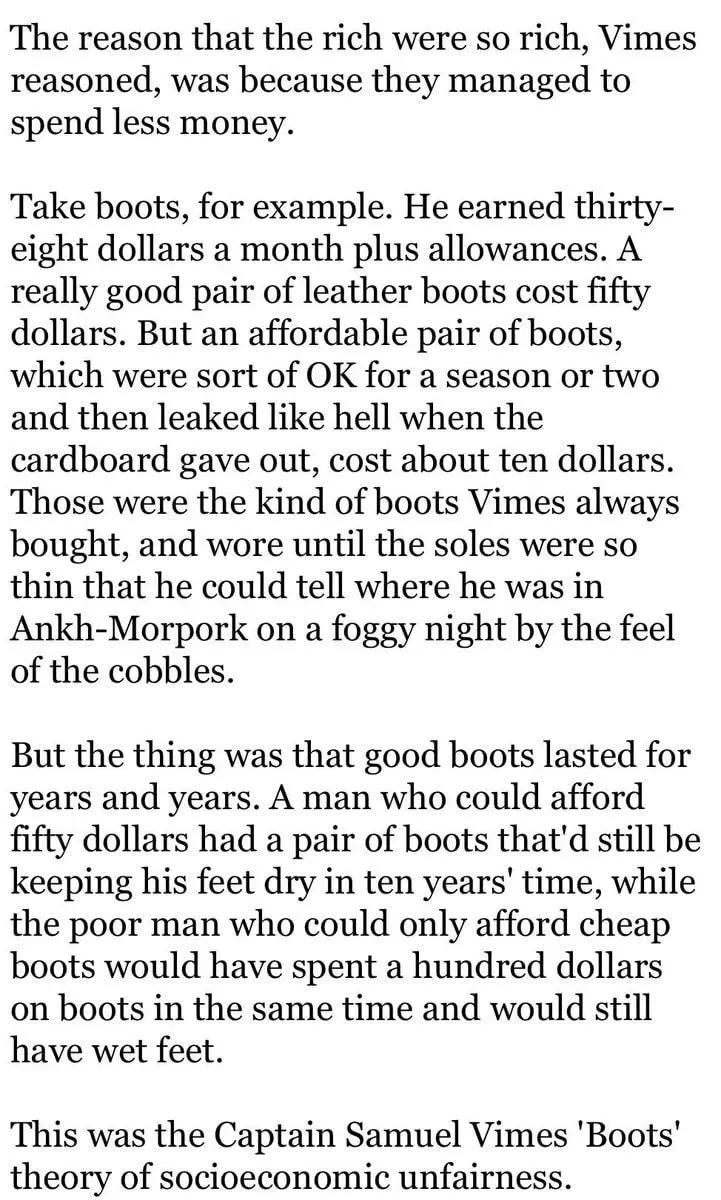The explosion of dollar stores in the U.S. is like a boot that keeps pushing stomping on poor people to ensure they have to way out and this theory perfectly describes the situation.
The way forward is not to replace dollar stores with Targets, it's to move beyond capitalism and it's base of exploitation and move toward a base of cooperation.
Some ideas:
- Make and grow stuff (food, weed, soaps, furniture, etc. and give it away, consume stuff your neighbors make and grow. Everything you avoid buying is power you don't give to the capitalists.
- If you have money, help those that don't to buy quality boots (without seeking to profit, such as from a loan)
- Fix things, value things not for being brand new, but for working and having history.
- Buy used (tho if you have money, take care not to buy up all the nice things at thrift shops leaving the scraps for those who the thrift shops are their only choice)
- Become reslilient at the community level - start out by making friends
